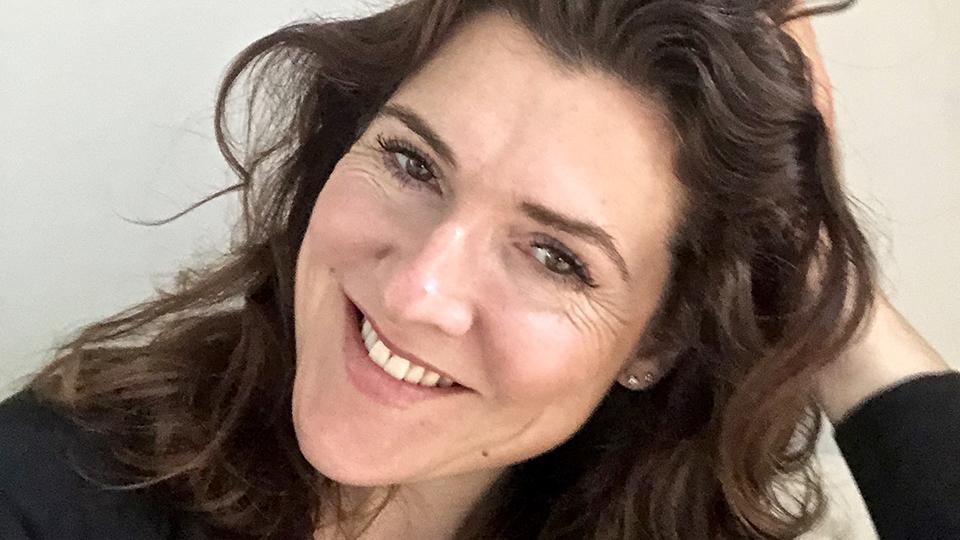Shakespeare helps women in prison tell their stories
Primary page content
A project which encourages women in prisons to explore Shakespeare and “answer back to the Bard” will be extended thanks to Arts Council England.

Charlotte Scott, Professor of Shakespeare Studies
Professor Charlotte Scott from Goldsmiths, University of London leads ‘Let’s Change the Story: Shakespeare in Prison’, working with a small team of theatre professionals and a group of incarcerated and recently-released women.
We asked Charlotte about how socially excluded, vulnerable and isolated women can find empowerment and self-worth by engaging with this unique initiative, and what the next steps are for the project.
Sarah Cox: When and how did 'Let’s Change the Story' begin?
Charlotte Scott: Over the last year I have worked with Mary Chater, an actress, dramaturg and founding member of Shakespeare in Italy, and a small group of women at a support centre in Woking, run by womeninprison.org. Leading up to International Women’s Day, we worked on a project, called ‘All that glitters’, to focus on how women can tell their own stories. Using Shakespearean prompts, scenarios and phrases, we explored role playing, empathy, the use of masks, and improvisation as well as compassion-led practices of sharing and listening, to put together individual stories that the women could then perform as monologues. The feedback on their final show on International Women’s Day, in front of the Mayor of Woking, support workers, police, probation officers and other women in need of support was unanimous in its celebration of the emotive, empowering and therapeutic effects of the performance.
SC: Why are you working with women in prison specifically?
CS: Research has shown that putting women in prison is rarely appropriate, necessary or a proportionate response to their crimes, and the impact of doing so is socially and economically devastating. More than half of imprisoned women have experienced domestic violence, and nearly half have attempted suicide at some point in their life. Prison has an enormous impact on child displacement, addiction, poverty and mental health, yet the figures for sentencing women to prison terms has been on an upward climb for 25 years. This project hopes to intervene in these trends and provide a sustainable model for developing arts-based projects in prisons which engage women in ways that are socially empowering.
SC: What relevance does Shakespeare have?
CS: Our workshops are based around the premise of talking back to the Bard – filling in the spaces where Shakespeare’s women are silent. But they are also about exploring stories that are not the province of the elite. The themes of his work are extremely relevant: mother and child separation, domestic violence, inter-familial relationships and questions of justice, empathy, free will and responsibility. If Shakespeare is one of the custodians of British culture then he must also be accessible to all and the plays are perennially fascinated, as we continue to be, by power and responsibility, legacy and change.
SC: How do the skills learned over the course of the project help in the long-term?
CS: This arts-based approach has helped our participants feel empowered, confident and supported. Getting involved in a creative project allows them to feel part of a community that values positive change and individual well-being, as well as offering the opportunities to women to represent themselves and be heard. Preparing for performance has also given them the chance to learn and develop practical theatre skills, how to direct, scene manage and run rehearsals, for example, as well as understanding design, lighting, costume and sound.
SC: You’ve now been awarded an Arts Council National Lottery Project Grant of £6,400 to extend the project. What happens next?
CS: This funding allows us to work with 30 women in HMP Styal in Cheshire and at the Venus Centre in Bootle and deliver two performances over the next few months that will focus on both Shakespeare and story-telling. A significant proportion of the women at Styal and those supported by the Venus Centre have not had access to the arts and many have not completed school education. We’ll be working with the charity Women in Prison and the Prisoners' Education Trust to provide compassion-led workshops that support the use of arts in the criminal justice system and offer powerful models of empathy and expression in the pursuit of positive representation and rehabilitation.